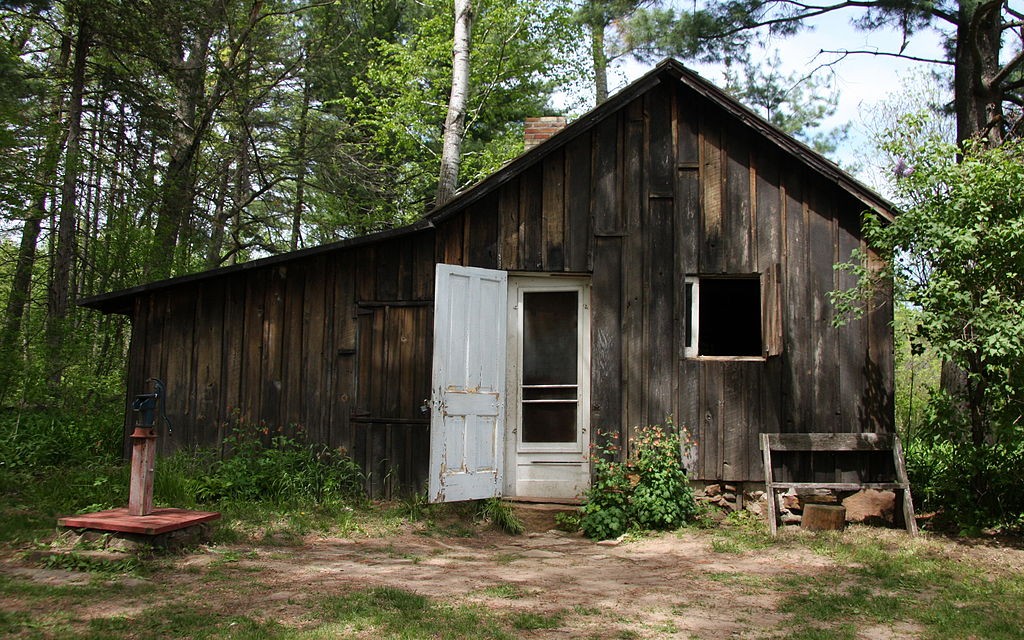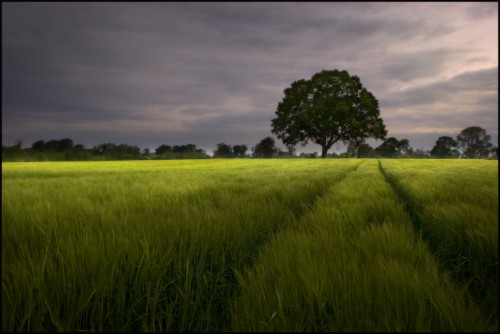In an essay titled “Conservation Economics” (1934) Aldo Leopold admitted that he was no economist. *
But then again he was not a man of narrow sensibilities either. The advice at the heart of his enduring criticism—the concise admonition to think like a mountain—issued from an expansive mind that knew how to enlarge the context of its own activity, and that in itself probably disqualified him from ever practicing the dismal science. Small objects of inquiry could not satisfy a large curiosity. Worrying about how money behaves could never lead to a land ethic. Leopold knew that the deep insights were never going to come from men who think like dimes.
In “Conservation Economics” Leopold was interested in what post-depression (and, as it turned out, interbellum) conservation would look like. Early in the essay he noted a “widespread conviction that our whip-hand over nature is no unmixed blessing. We have gained an easier living, but in the process of getting it we are losing two things of possibly equal value: (1) The permanence of the resources whence comes our bread and butter; (2) the opportunity of personal contact with natural beauty.”
The first of these concerns—“the permanence of the resources whence comes our bread and butter”—has been the topic, more or less, of my previous two essays. I have been at some pains to draw attention not to artificial wealth but to the real wealth that backs it. The second concern and the “whip-hand” I have so far left alone, though their time is coming.
Leopold, for his part, was willing to admit that “conservation is the effort to so use the whip that these two losses will be minimized,” but he too was for the most part concerned about the first of these losses.
At a time when the New Deal money bags were open, Leopold pointed out that, notwithstanding governmental largesse, it still “takes 3 acres to put a bird in the hunting coat,” and that’s if you respect the safe limit of an annual kill of only a third of the upland bird population. This was Leopold’s a way of reminding his readers that there’s no magical creature making sure the supermarket shelves get restocked during the night shift. No amount of willful ignorance or ear-plugging can change the fact that our economy is finally a land economy. Butter requires milk, which requires animals, which require acreage, which is not only limited but also at times so depleted as to be incapable of supporting the animals, which means the land itself requires not open money bags but careful husbandry, which is also obviously governed by limits, in particular the human limits of knowledge, skill, and affection.
And so Leopold worried himself, properly, over forests and soil as well. He thought timber-growing could be relegated to public lands, but he saw no easy solutions to the disease of erosion, which he called “a leprosy of the land, hardly to be cured by slapping a mustard plaster on the first sore. The only cure is the universal reformation of land-use, and the longer we dabble with palliatives, the more gigantic grows the job of restoration.”
The gigantic job of restoration seems to have governed Leopold’s remarks on the economics of conservation. He noted that “no balanced program can be built on profit alone. Public intervention is necessary,” which was a way of saying that the self-interest now accounted a virtue in the dismal science is unequal to the task of preserving the resources whence come the bread and butter. There must be a place for regulation—that is, for government.
Nevertheless, he did allow for incentives for proper land-use, which he regarded as better than penalties for improper land-use, “because penalties are ex post facto.” But this was because “prevention, whatever the cost, is usually cheaper than cure.” Everything that followed upon this observation was perfectly sensible. The man who was worried during the New Deal about the “physical integrity of America in A.D. 2000, or even A.D. 1950,” didn’t have the benefit of seeing corporate welfare for automakers and banks, but he did admit to challenging “the economy of buying wrecks instead of preventing them.” The man who said “I am no economist” also predicted that conservation would “ultimately boil down to rewarding the private landowner who conserves the public interest.” He asserted a “new premise”: “that if he fails to do so, his neighbors must ultimately pay the bill.”
But he also thought that “the public is at last ready to do something about the land problem.” So be it noted: 1934 was the last time in human history such a remark could be made seriously.
(Leopold also used the word “conservatives” to mean “conservationists,” and he used “conservative use” to name the activity such conservatives engage in. He even went so far as to point out that Congress was about to tax duck hunters in order to restore the marshes that its own agents had drained.)
Leopold understood that the problems of conservation were not going to be solved by “young technicians … each schooled only in his particular ‘specialty.’” You can’t think like a dime or a forest trail or a footbridge or even an upland bird and hope to secure a sufficiency of goods. You’ve got to think like a mountain. You must bring to conservation a mind expansive enough to see the unified whole, of which parts are essential but, taken by themselves, merely parts. A thumbnail is an identifiable part, not to mention a useful part as well. But if you specialize in the thumbnail with no regard for that living unity to which the thumbnail belongs, and which consists of many other parts about which you must also be knowledgeable, you might as well be an undertaker. Your specialty is not Man but bodies, and your region is death.
“The plain lesson,” said Leopold,
is that to be a practitioner of conservation on a piece of land takes more brains, and a wider range of sympathy, forethought, and experience, than to be a specialized forester, game manager, range manager, or erosion expert in a college or a conservation bureau. Integration is easy on paper, but a lot more important and more difficult in the field.
One of the most memorable lines in “Conservation Economics” is this: “we have invented engines of unprecedented coarseness and power, and placed them freely in the hands of ignorant men.”
If there is a reason to argue with this assertion, I don’t know what it might be. I look about me and I see engines of coarseness and power everywhere, and of ignorant men poised and ready to straddle them there is no paucity.
But I do see cause to modify the assertion. Leopold had in mind actual engines that operate by a kind of brutish unintelligence. But there are other engines of unprecedented coarseness and power as well. Politics is one such engine. Economics is another. Into the hands of what kinds of men have we freely placed them?
I once heard it said that the problem with environmentalists is that they don’t want people in their system and that the problem with economists is that they don’t want nature in their system. Leopold knew that everything belongs in the system. He knew that costs are costs, that their notes come due. And he knew that butter isn’t churned by an Invisible Hand.
* from The River of the Mother of God and Other Essays, ed. Susan L. Flader and J. Baird Callicott (Madison: University of Wisconsin Press, 1991).






